The Educator Who Established a Unique Seminary: "We're 'Fired Up' About Mitzvot"
What’s the connection between different types of washing cups, special shofars, and a giant model of tzitzit? For Meir Yehuda Berger, these are just part of the tools he uses to convey the vitality of mitzvot, and that's why he founded the 'Chayut D'kedusha' seminary.
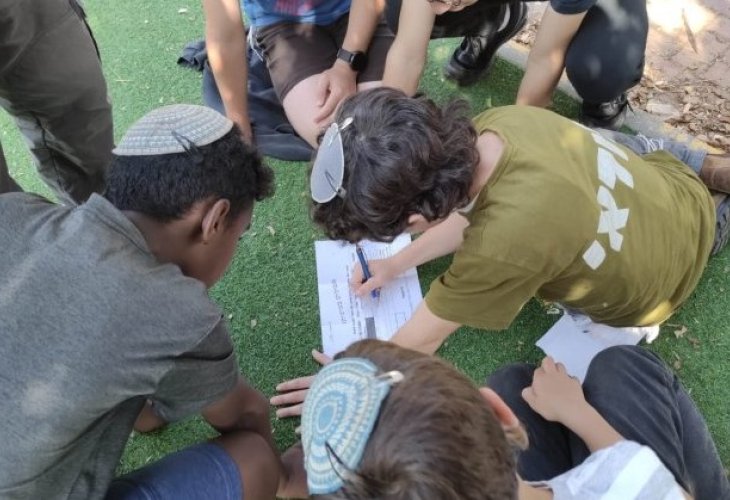
'Chayut D'kedusha', what do these words mean to you? You probably know what a seminary is, what vitality is, and what holiness is, but how are these three words connected and what exactly do they offer there?
Meir Yehuda Berger, the initiator and founder of the unique seminary, is not surprised by the question. He often hears it when he talks about the seminary, and even more when he presents the content taught and the methods that help him convey the lessons: a giant model of tzitzit, special shofars, washing cups of all types and kinds, giant tzitzit fringes... confused? "These are just illustrative tools," Meir hastens to explain, thus delving into the core idea he leads from his home in Ma'ale Ephraim in Samaria, reaching all over the country. "In the 'Chayut D'kedusha' seminary, we 'fire up' about the mitzvot," he explains, "and through our lighting up activities about the mitzvot, we raise participants' motivation to fulfill the commandments with identification, choice, awareness, and a desire to cling to Hashem."
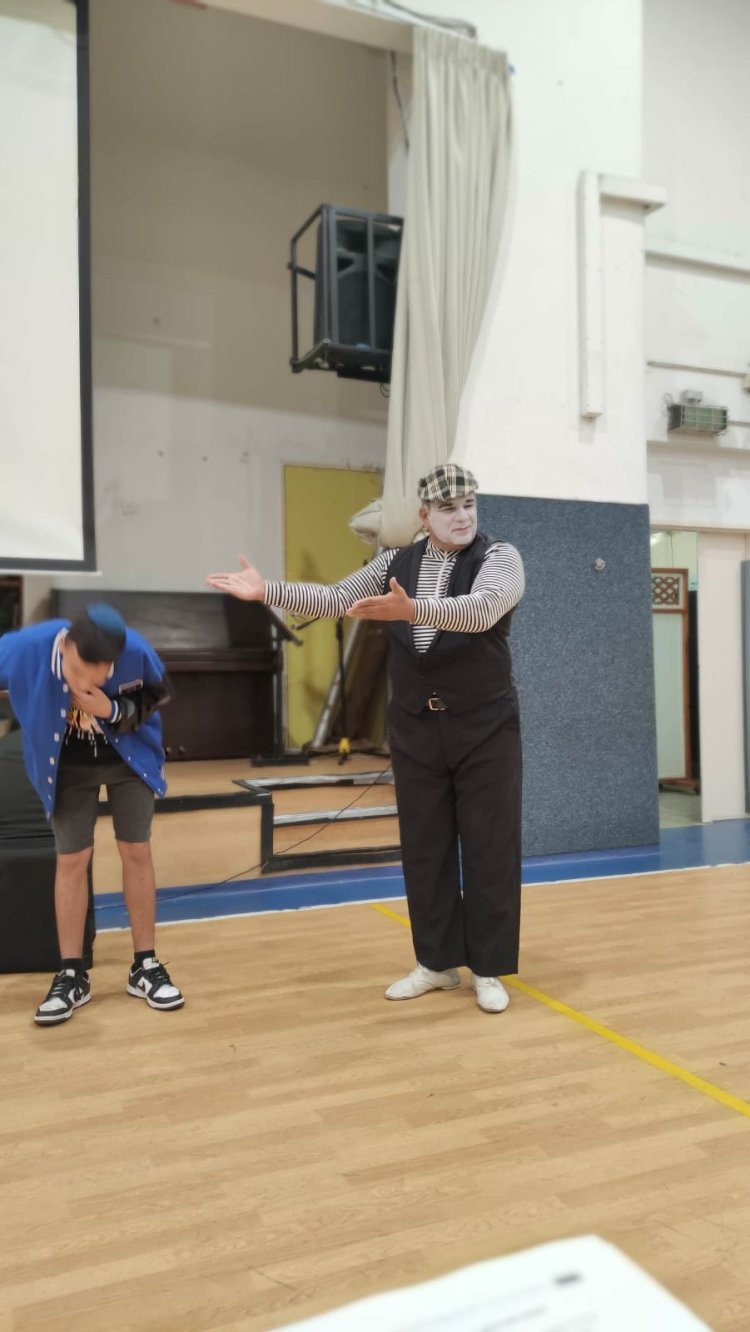
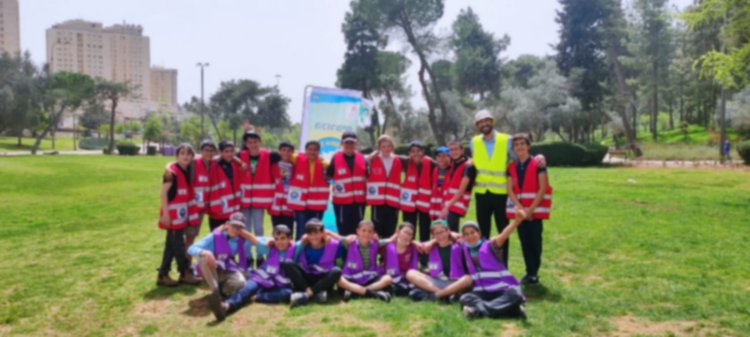
From Joy and Understanding
Meir began his professional path as an educator in both formal and informal education, but it quickly became clear to him that he was not realizing his skills and talents in regular teaching methods and wanted to contribute more significantly to the world of education. Then the idea to establish 'Chayut D'kedusha' came to his mind.
"It was kind of a dream come true," he says, "because for a long time I felt that in every area of performing and adhering to mitzvot, there is a point that needs strengthening in religious education because even those aware of their importance don’t always feel the connection and identify with the mitzvot. As a teacher, I knew the field and saw my students and other young people I met looking for something to 'ignite' them, to create an emotional and intellectual connection to the mitzvot. I searched for a solution, but it didn’t exist systematically. That's when I realized that if it’s really important to me, I need to jump into the water and establish the seminary."
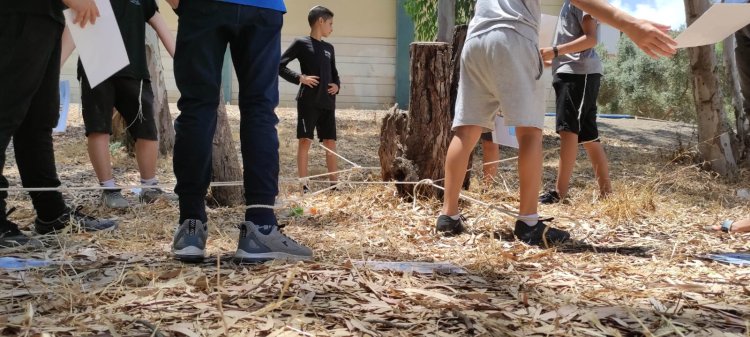
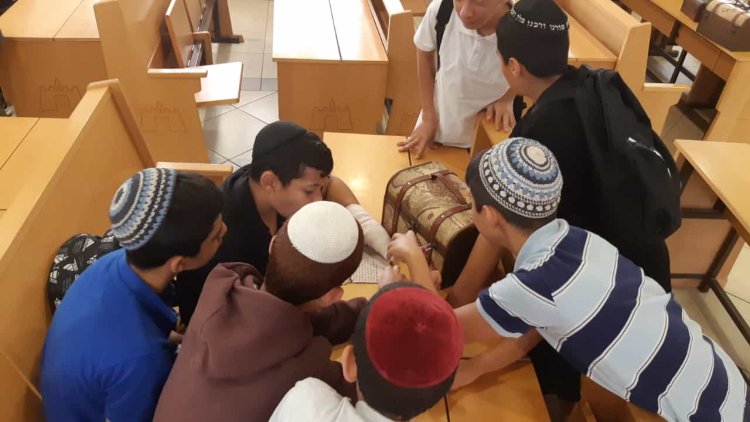
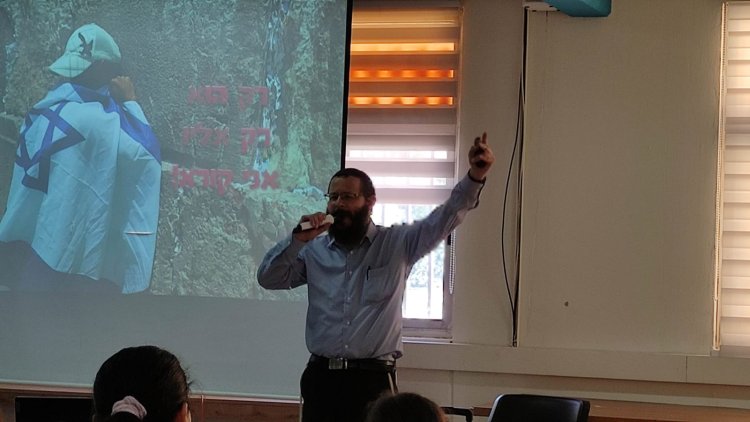
And what did you do?
"Firstly, I want to emphasize that I continue to work as a formal education teacher even today, doing it two days a week at Amit Bar-Ilan High School in Ramat Gan. But alongside it, I founded a special seminary dedicated to experiential teaching of mitzvot and halacha. The first mitzvah I chose was one that seemed less 'amazing' and special – 'the mitzvah of washing hands'. I created an engaging and fascinating lecture with many tangible demonstrations of the laws, along with an in-depth explanation of why we wash hands before meals, and I began giving it in schools and kindergartens. I noticed, unlike a regular lesson where the teacher talks and students listen mainly to pass a test, here they listen to the lecture because it’s captivating and fascinating, and for the first time, they feel truly connected to the mitzvah. From there, I decided to move to other mitzvot, and thus I constructed more and more lectures on various mitzvot, while also finding and offering institutions, communities, and bar and bat mitzvah events expert content specialists in their fields who themselves built more lectures, workshops, or activities in practical halacha in an experiential manner on various additional mitzvot and know how to convey them in a correct, highly empathetic, and engaging way. The purpose is to motivate participants to realize their faith by observing halacha, as this, in my understanding, is the main means to cling to Hashem and faith."
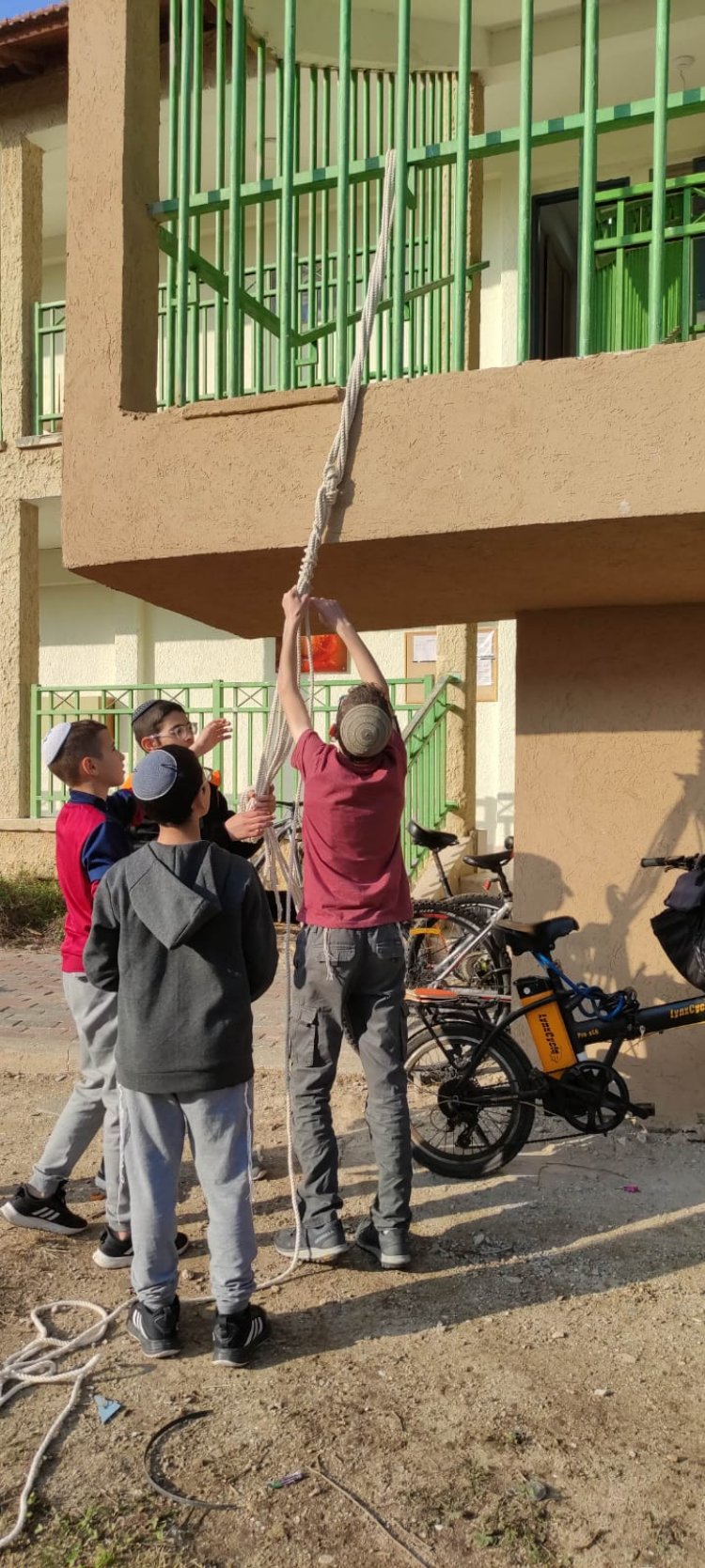
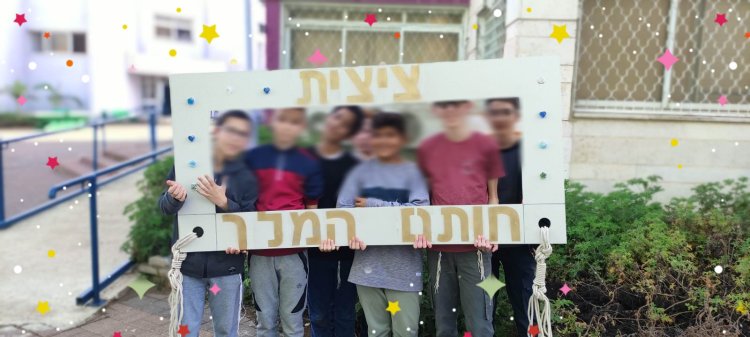
And how do you practically explain the halachot?
"As anyone who observes mitzvot knows, halacha can often be perceived as complex, difficult, and burdensome, as it sometimes contains complex or challenging elements that aren’t easy for us to put into practice due to different methods or details and calculations that need to be known, and these things cause us to feel a certain difficulty during the performance of the mitzvah and a difficulty in connecting to it because it is seemingly complex, burdensome, and heavy.
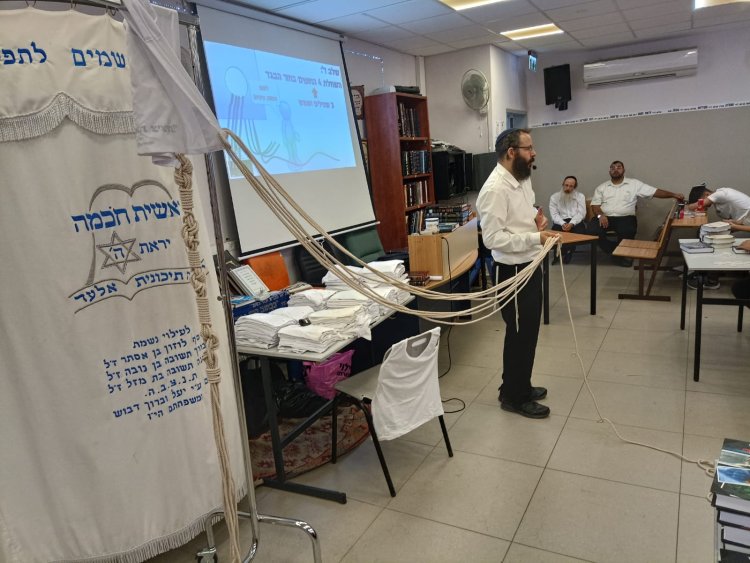
"My goal is to make halacha more practical and understandable, almost avoiding areas of dispute, but presenting the details clearly and plainly, thereby stimulating 'interest and appetite'. We use lots of stunning presentations and videos, with much emphasis on the visual side."
Understanding and Observing
There’s also a personal dimension in this unique initiative. "Although I was born religious, for years I felt that I was observing mitzvot because that's 'what you're supposed to do' and not because I was really connected to what I was doing," shares Meir. "And I especially felt a struggle with the study of halacha that I undertook. What made me realize there's another way were the two years I studied at the 'Birkat Yosef' Yeshiva in Elon Moreh, where the head of the yeshiva, Rabbi Eliakim Lebanon Shlit”a, would be meticulous in teaching us halachot in a tangible manner. For example, on Friday night, when we sat in the dining room, he demonstrated the laws of Kiddush; when they built a mikvah at the yeshiva, he took us out to the field and showed us how to fill it with kosher water even in the middle of summer, and other subjects as well. It gave me a different experience of learning halacha that I hadn’t known. Now, looking back, I know that the foundation of the seminary I established began in those days. My greatest satisfaction is when I finish a halachic activity, and children and teenagers approach me and say, 'It was fun' or 'It was really interesting'; it makes me very happy to know I managed to create a real connection between them and mitzvot and the study of halacha."
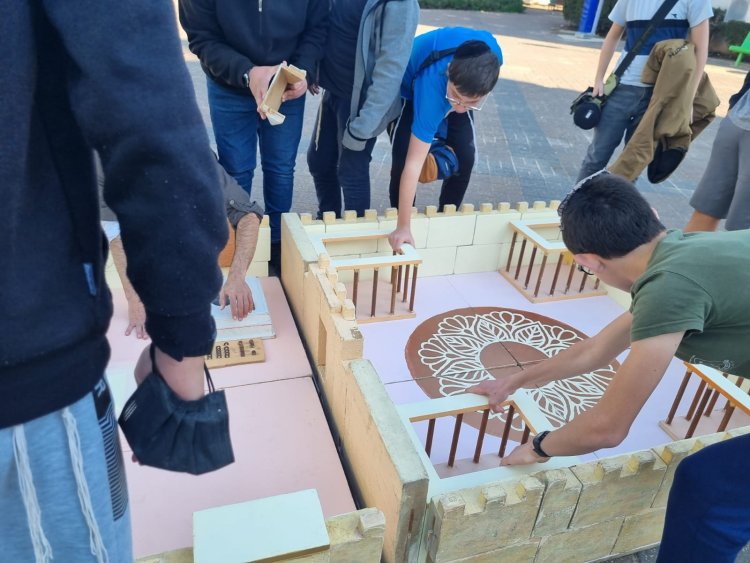
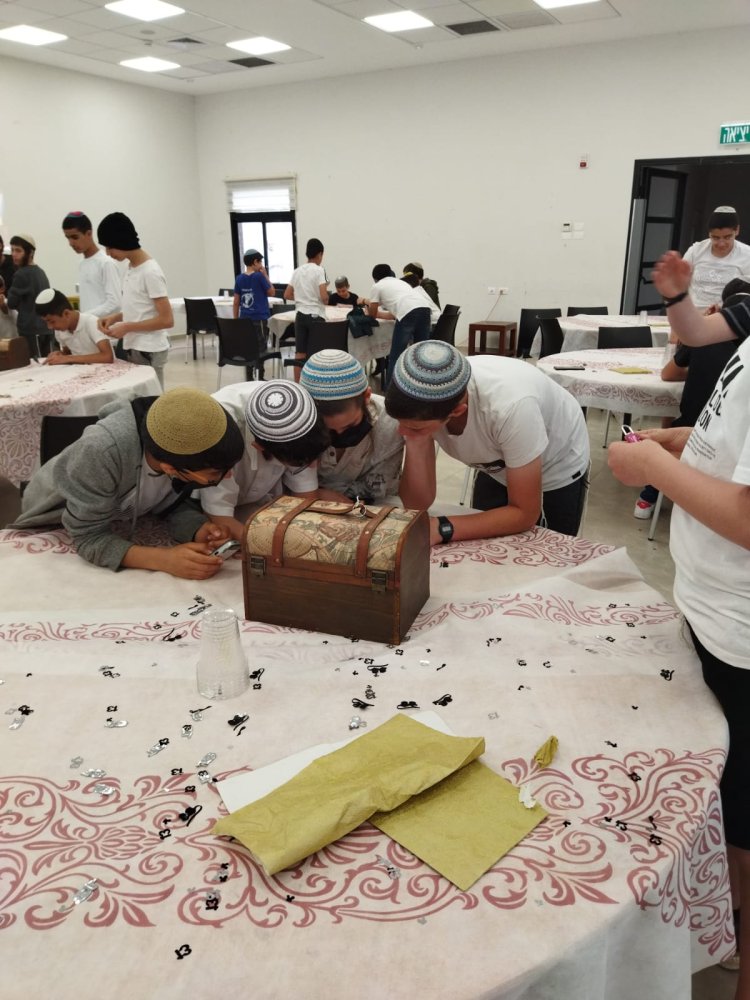
And isn’t making mitzvot 'fun' potentially harmful? After all, we need to observe mitzvot because that's what Hashem demands of us, not for personal enjoyment...
"I've heard this question a few times in the past, so it's important for me to emphasize that we're not just busy with 'how to do' to make the mitzvah experiential, but we also definitely deal with the question 'why do'. We delve into the subject and study it seriously, but the primary principle is that because that's what we were commanded and we're servants of Hashem doing His will. Our idea is to create a true connection, out of love and definitely out of awe as well, but primarily through investigation and understanding since that's what really connects us to the subject."
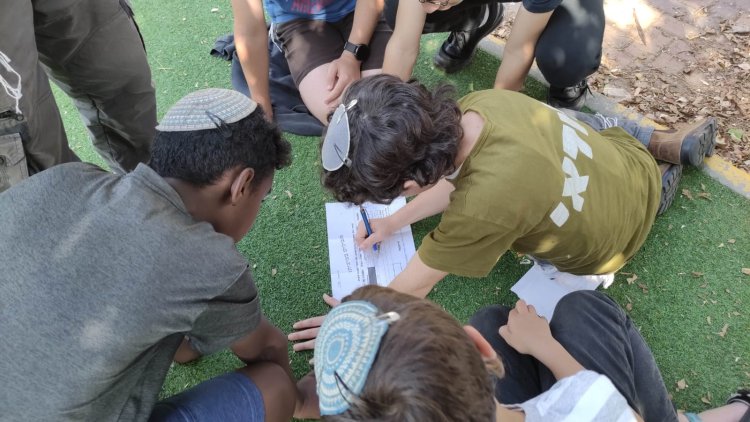
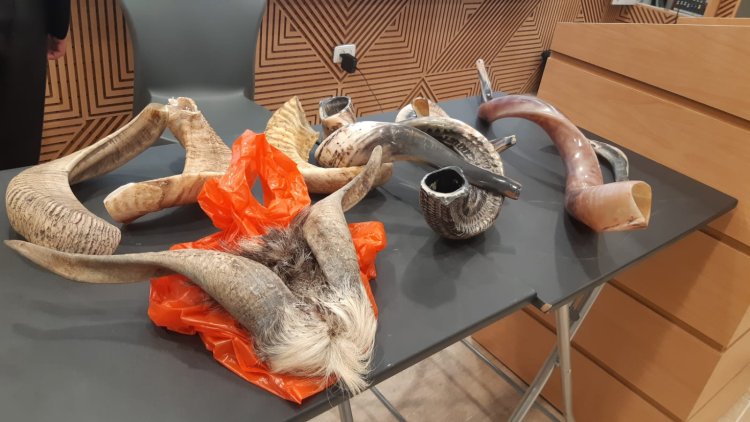
And who is your target audience?
"We reach the religious public all over the country, for whom halacha is an important value in their world, but we're also occasionally invited to the ultra-Orthodox public and even to non-religious audiences, and we tailor the content for them."
Among other things, Meir notes that institutions often invite them for father and son evenings, usually around a tzitzit tying workshop. "The fathers and boys experience the tying together, and it connects them to the mitzvah in an extraordinary way," he explains, "and not least connects them to each other; they come out of such a workshop happy. A rabbi at one of the yeshivas told me about a mother who testified to him after a father and son tzitzit tying evening, that her husband hadn't come back from a parents' evening with such a smile in 15 years..."
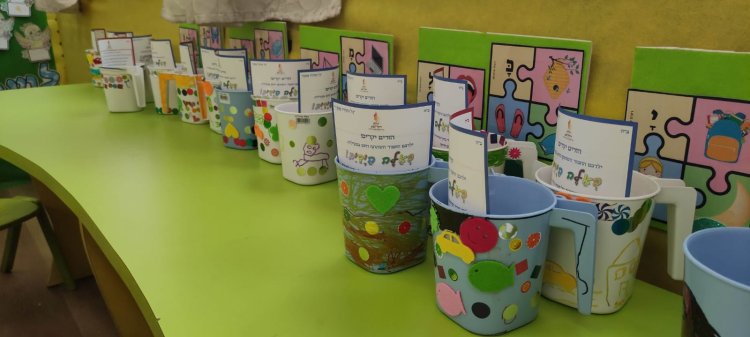
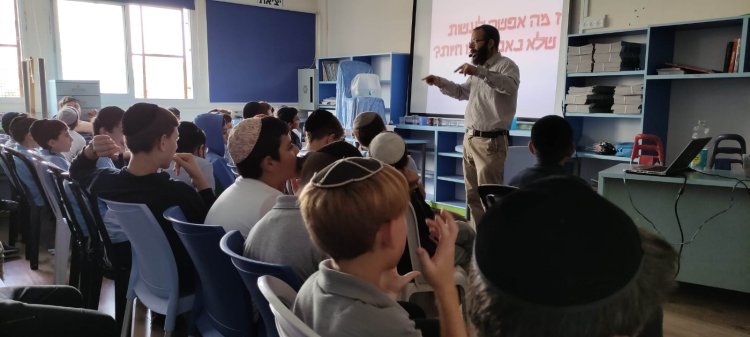
He also shares a moving story: "In one of the tzitzit tying workshops, I was walking among the students and saw a child who couldn’t manage to tie the tzitzit, and when I approached him, I saw he was shedding tears out of frustration. Since I come from the world of education, and it's important for me to reach and empower the students, not just convey a message, I sat beside him and told him confidently, 'You're capable, don't give up, you'll leave here with a tied tzitzit'. I guided him again and again, and I also asked one of the educators to sit next to him and ensure he succeeds up close. Eventually, he left with a tied tzitzit, and he was happy and beaming. It's a truly moving and strengthening memory that stays with you.
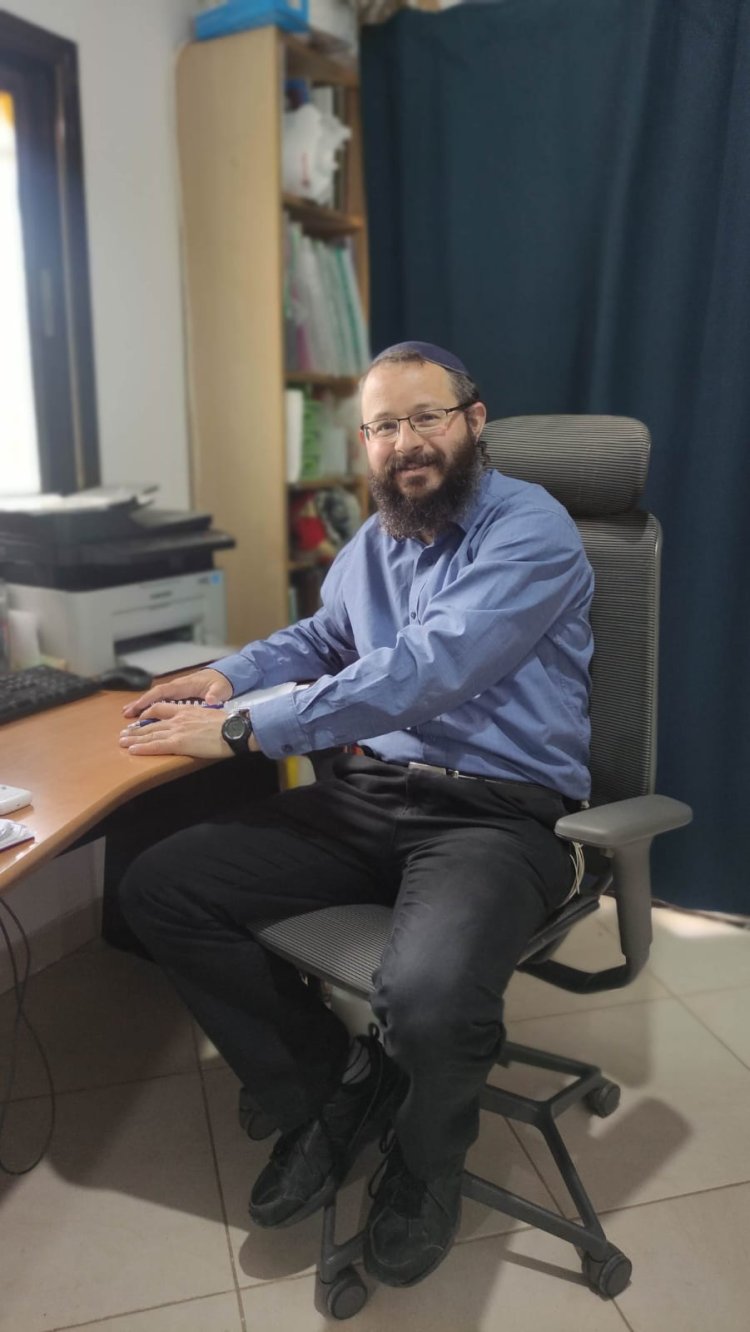
"I also conduct experiential lectures on haircuts for boys, teaching them how to get a haircut according to halacha and providing tips and explanations. After every workshop, teenagers stand by my side to ask if their haircut is done properly or not; it’s truly moving to see how much they care.
"The truth is, the moving moments happen all the time and really every day. Someone recently told me about her daughter who returned from a hand-washing workshop and taught the entire family how to perform it correctly. Many times educators have approached me, telling me that due to our talk on prayer to students, their prayers have changed. I constantly hear feedback indicating they truly connect to mitzvot when it is taught in the way of 'Chayut D'kedusha'.
"But more than anything," he adds, "I think I've influenced myself; in essence, the seminary is my own process of returning to a deeper observance, learning to engage properly and deeply in observing mitzvot. It's an endless journey in which I connect my heart and mind to the action and halachic precision, to fulfill the blessed will of Hashem. It pushes me forward, makes me joyful, and truly fills me."

